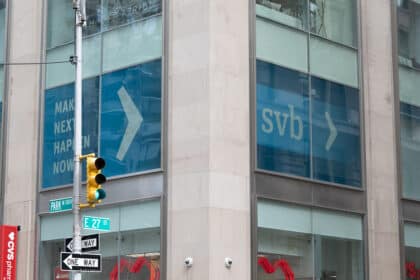The decision to take over Signature Bank was made to reduce depositor outflows and prevent further bank runs.
The New York Department of Financial Services (NYDFS) has taken over the crypto-friendly bank, Signature Bank, to safeguard depositors’ funds and preserve confidence in the US economy.
After the collapse of Silicon Valley Bank (SVB) due to a bank run, mid-sized banks like First Republic and Signature Bank floundered as fears of a financial crisis increased. First Republic saw its stock plummet by 15%. Also, Signature Bank saw its stocks lose about 23%.
Despite the falling stock prices, analysts opined that Signature Bank would pull through because it served a greater variety of customers and boasted a more solid fundamental. In light of recent market events, Superintendent Adrienne A. Harris noted that the DFS was monitoring all its regulated companies to ensure the global financial system is stable. Consequently, the Treasury has stepped in to stem the bleeding in Signature Bank and prevent any further crisis.
What Should Signature Bank Depositors Expect?
As of December, Signature Bank had approximately $110.36 billion in assets and $88.59 in deposits. In a joint statement, the Treasury, Federal Reserve, and FDIC announced a systemic risk exception for Signature. The decision to take over Signature Bank was made to reduce depositor outflows and prevent further bank runs.
According to an unnamed Treasury official, “the firms are not being bailed out. The depositors are being protected.” The Treasury has assured all depositors of the safety of their funds. However, shareholders and unsecured bondholders will not be protected. In a statement by the Federal Reserve, the approach aims to “promote strong and sustainable economic growth.”
Dilemma for Crypto Companies
Following the FTX saga, it has become increasingly hard for crypto companies to find banking partners. The Signature Bank was only one of a few left that accepted large-scale deposits from crypto firms.
As Silvergate teetered, companies like Coinbase and Ledger X moved their assets into the company. With the Treasury now controlling the crypto-friendly bank, the crypto companies will be glad their deposits are safe. Where the concern will now shift is where to find banking partners. Regulators have consistently warned about the risk associated with crypto clients’ boasts and may be unwilling to work with crypto firms.
An experienced writer with practical experience in the fintech industry. When not writing, he spends his time reading, researching or teaching.




